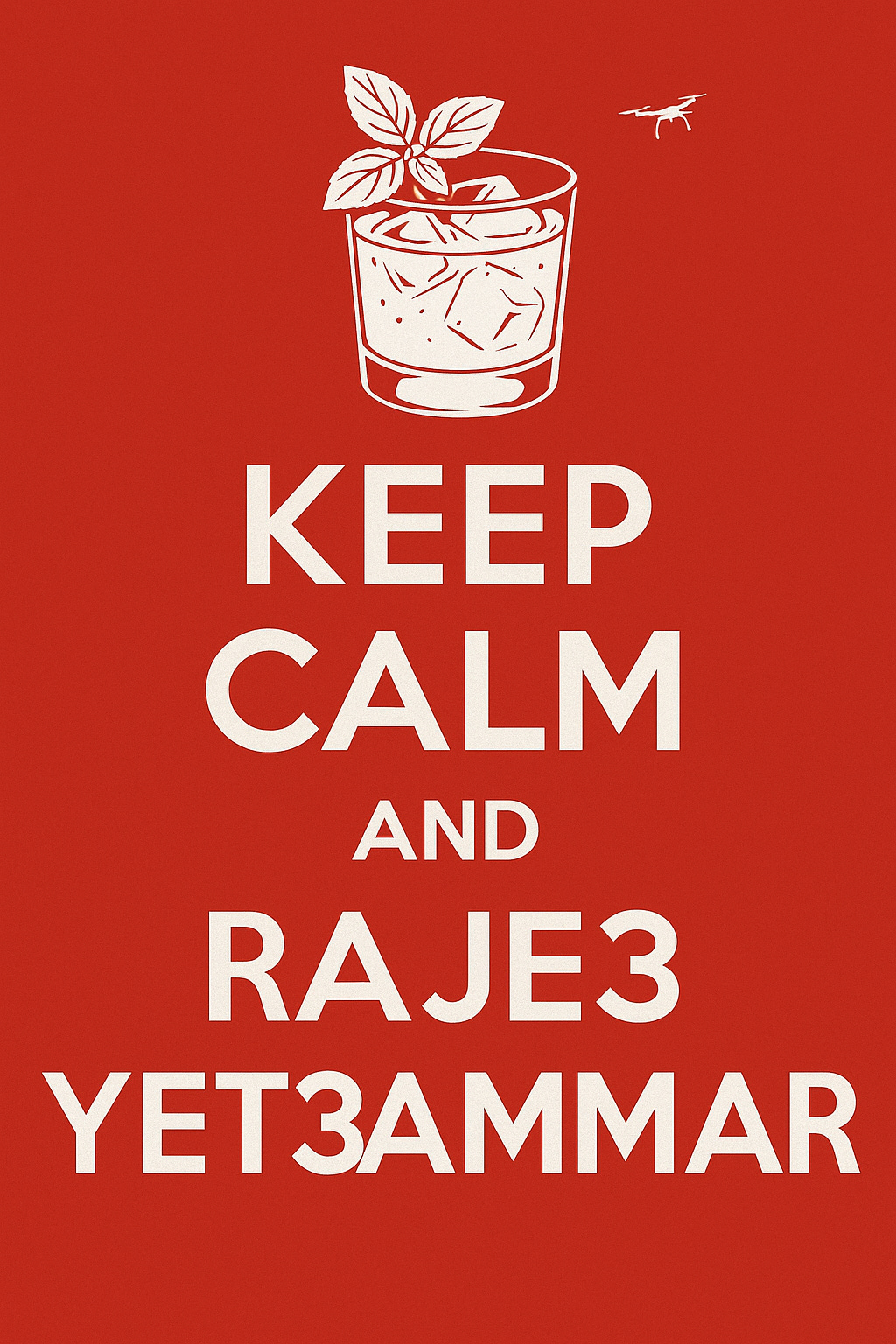Summer in Lebanon makes it easy to forget. The festivals are back, expats fill the streets, music spills from rooftops into warm nights. It's natural to want to lose ourselves in this season of return and celebration.
But our leaders have turned forgetting into an art form.
The drones still hum overhead while ministers sing "Raje3 Yet3ammar" on festival stages. Our phones still buzz with airstrike notifications while the government debates lottery regulations. We can't blame this on seasonal denial, and it's time to call it for what it is: amnesia about why this cabinet exists in the first place.
The War That Never Ended
In Lebanon, the war is not over—not really. Not while Israel still occupies five contested border points. Not while UN Security Council Resolution 1701 sits half-fulfilled.
This is Hezbollah's argument, and it's not a fringe one. As long as Israeli boots are on Lebanese soil, the party says, there will be no disarmament. In their eyes, the equation is simple: the occupation justifies the arms.
But this is where the state pushes back. If we accept that arms are justified by grievance, then we accept the undoing of statehood. The state's job isn't just to protect territory. It's to monopolize force. That's what makes it a state in the first place.
So yes, two things can be true at once. It is the Lebanese state's responsibility to reclaim occupied land. But it is also—simultaneously, urgently—the Lebanese state's job to disarm internal militias and convince its citizens, especially in the South, that it, not Hezbollah, is their protector.
Here's the brutal truth: so far, it has failed on both fronts. The Lebanese Army is under equipped, politically constrained, and often deployed as a symbolic line of defense. And Hezbollah's arms—for all their presence—have not meaningfully deterred Israeli aggression, nor inflicted lasting damage on one of the most advanced militaries in the world.
This leaves us in the worst possible scenario: caught between two incomplete sovereignties. A state that cannot fully protect, and a militia that refuses to fully retreat.
What We're Choosing to Forget
Meanwhile, Lebanon faces its most severe drought in recorded history. Civilian casualties mount weekly from targeted airstrikes. Over 90% of imported fuel is stolen and unpaid for. The UNIFIL's mandate might not be renewed.
And what does our emergency cabinet focus on? Setting up cannabis councils. Regulating lottery games. Inaugurating tourist sites and festivals.
The Narrative of Nothing
Ask the government about disarmament and they'll point to the inaugural speeches—it's the priority, they'll insist. But words without action become their own form of forgetting.
No presidential address to acknowledge the looming risk of renewed Israeli strikes as patience runs thin. No debate in the council of ministers about Lebanon's response to American proposals. No acknowledgment that we're walking blindfolded toward another confrontation.
When I asked one minister this week what he aspires to achieve—what KPI he'd use to measure his own success, what Lebanese people should hold him accountable for—his answer was telling: "I want to be remembered as having done my best."
Maybe this lack of clarity reveals the deeper problem. What is this cabinet here to do? As a collective, as individuals? It's the same confusion we see around the ceasefire agreement—does it cover weapons south of the Litani or the whole territory? Without clear goals, how can there be accountability?
The Honesty We Deserve
I have great respect for the members of this cabinet. It's easy to criticize when you're not in their shoes. But we deserve basic honesty and transparency. We deserve leaders who face their limitations rather than bargain around them.
If ministers are unhappy being sidelined from key decisions, they should resign rather than play along. Their mandate was about restoring state sovereignty, not visiting Cyprus, commercializing weed or singing on concert stages. If they can't fulfill that mandate, they should step aside for those who will.
Most importantly, why won't anyone address the Lebanese people with cruel honesty? Why won't they admit: we are blindsided, we have no clue how to fulfill the disarmament obligation we face? As the French say, we're wearing a dunce cap (porter un bonnet d'âne) while the party goes on.
What's at Stake
What's frightening isn't just the current balance of power. It's the future clash it hints at. When confrontation erupts again along the southern frontier, it may not be Hezbollah who meets Israeli soldiers. It may be the Lebanese Army—outgunned, unshielded, and asked to hold a line the Republic hasn't finished drawing.
I have this weird bitter taste in my mouth and constant anxiety that war is again imminent. You might say, what's new Kristy, every summer we get this feeling in Lebanon. But what's different this time is that we had expectations. This isn't about the usual suspects disappointing us again. We have competent, deserving people in power for once.
That's what makes this so hard to swallow, and why this collective denial feels like betrayal.
We need a middle ground between despair and delusion. The summer season provides lifelines to communities whose survival depends on them. But there's space for decency, for leadership that recognizes the country is still at war.
The drones are still humming overhead. Our phones still buzz with notifications. The question is whether anyone down here is still listening—or if we've all learned to dance to their rhythm instead.
I’d love to know how you feel,
K



Great piece! Stating the obvious, but it’s shaping up to be a very interesting September…
So well written , and so well said ! Bravo Kristy ! A very realistic and clear analysis of our tricky Lebanese situation!